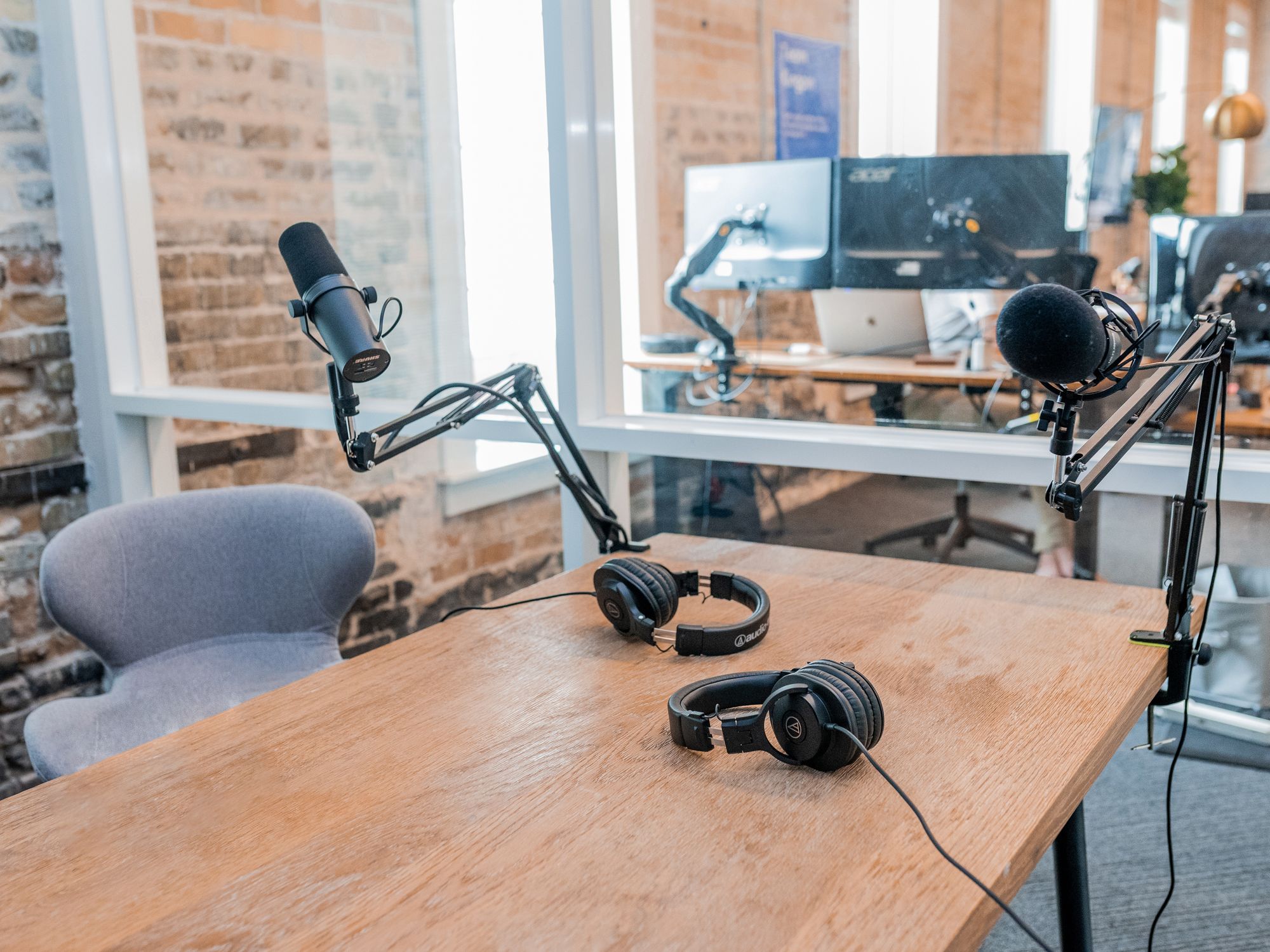Ask the Experts: How to Produce a Podcast
Tanner Campbell from PortlandPod joined the Simplecast team to go over the nuts and bolts of podcast production.

Missed out on our webinar for Simplecast customers last week? No worries! Tanner Campbell from PortlandPod joined the Simplecast team to go over the nuts and bolts of podcast production, and why things like planning and location are just as important as recording and equipment.
Planning Stage
Like any campaign, product rollout, or initiative, a podcast requires planning. If this is you or your team’s first time producing a show, you might feel the urge to just sit down in front of a microphone and start recording. Take it from us, and the other podcasters we’ve worked with: the planning phase is just as important as recording, and crucial for smooth podcast production. Do all of the legwork you’d do for any project: what’s the purpose? Who’s your audience? What are you trying to deliver? This lays the groundwork for who your guests are, how your show is structured, and what you marketing looks like. Without it, you can’t be thoughtful or tactical about your show.
Podcasts are a form of storytelling, so it is imperative to outline each episode. Conceptualize a basic framework for each episode ahead of time–this also helps break up creating each episode into manageable chunks. There’s not need to reinvent the wheel every time you’re planning a new episode! Above all: Don't rush the ideation process. Be patient with yourself and allow the podcast to evolve organically.
Recording and Production
As much as people like to say there’s a low barrier to entry with podcasting, the truth of the matter is that podcasts that are set up for success aren’t recorded on the street into your phone. However, equipment is secondary to content and tertiary to the environment. So: don’t stress too much about equipment, but always record in a quiet room isolated from distracting noises. Being cognizant of your recording environment will save you time and energy post-production.
Although not as important as the environment, your equipment will impact your podcast. While you should invest a bit in a quality microphone, you don’t need to spend thousands of dollars. You can continue to improve your quality as you go, but in the beginning you’ll be totally set with a durable microphone that doesn’t break the bank.
Post Production
For new podcasters, there are a huge advantage to editing your own podcast: learning new skills, becoming a self-sufficient podcast creator, and refining your show. It might be hard to justify to yourself or your team spending the money to hire someone to edit your show for you, but if you have the time and bandwidth to learn, spending 6-12 months editing your own podcasts will give you the skills to keep your work in-house. Editing your podcasts will also help you listen back to your recordings and improve your podcast creation. When you’re elbow-deep in your own show for multiple hours, you can’t help but think about what you’ll do differently on your next episode!
(As a business, post-production might look a bit different. Based on the size of your company, it may be more cost-effective to outsource your editing needs to a professional.)
How to Improve Your Podcast
- Write, write, write! Write out the concepts and outline for each episode. It will reduce your recording and production time and improve your flow.
- Give yourself extra time. Don’t underestimate the time it takes to record and edit.
- Get ahead. Get 3-4 episodes ahead so you don’t end up overloaded. Take a break if you need to–nobody likes burnout!
- Become a better host. Nobody starts out as a perfect host. Try a few demo podcasts and listen back to the audio, while taking notes on what worked and what didn’t. You’ll get better the more you do.
Ready to get started with your podcast? Learn more expert podcasting tips and tricks!

